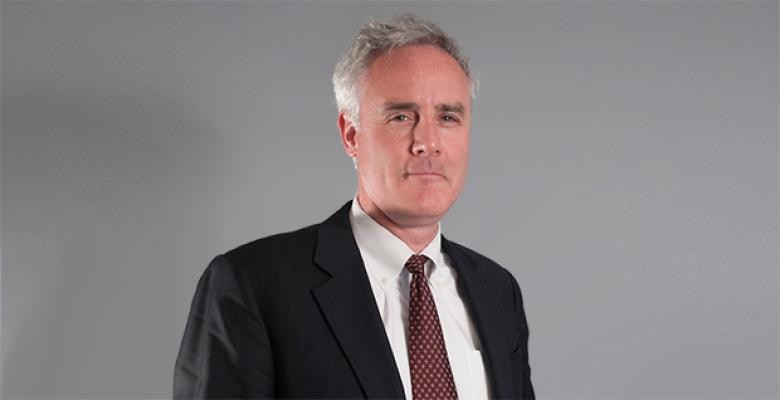Social Psychologist Studies the Ins and Outs of Navigating Conflict

This year—or indeed any year—there may be some especially difficult conversations if the discussion turns to politics. Peter T. Coleman, director of the Morton Deutsch International Center for Cooperation and Conflict Resolution at Columbia’s Teachers College, offers advice.
“This is probably not a time to work out a problem with a particularly contentious family member or a particularly contentious friend unless the relationship can tolerate it,” he said.
Coleman (TC’97), a professor of psychology and education, teaches courses in conflict resolution theory, social psychology and social science research. He believes the U.S. is now more polarized than at any time since 1879, shortly after Reconstruction and a very divisive Congressional election.
“Policy issues such as gun control, abortion, immigration, and so on have become highly correlated within camps,” he said. “We’re oversimplifying the world in dangerous ways and not paying attention to real problems we’re facing. It’s just whether your team supports it or not.”
Coleman, who also has a faculty appointment at the Earth Institute and is executive director of its Advanced Consortium on Cooperation, Conflict and Complexity, never planned for a life in academia. A graduate of the University of Iowa, he came to New York in 1981 to be an actor, appearing in soap operas and commercials before turning to playwrighting. After working with adolescents in psychiatric hospitals in Florida and New York, “I found the work meaningful in a way I hadn’t found in acting,” he said.
He had no formal training in conflict management at the time but had read about Carl Rogers (TC’28,’31), a psychologist who tried to help resolve disputes in Northern Ireland and South Africa. Intrigued by his work, Coleman visited Teachers College in 1991, and discovered the work of social psychologist Morton Deutsch, then a professor emeritus and a top theorist in the field of conflict resolution, and founder of the International Center for Cooperation and Conflict. (The center was later named for Deutsch, who died in 2017 at the age of 97.) “Conflict is fundamental to the human condition,” said Coleman. “The question is what are the conditions when it goes well and people learn, engage constructively and grow, or when it goes poorly and escalates to become violent or problematic in other ways?”
The center has worked with the United Nations, the World Bank, such countries as Mozambique, Myanmar, Colombia and in the Middle East. It offers some 30 courses in such subjects as negotiation and mediation, conflicts in organizations and schools, as well as conflict resolution theory. It also has a "difficult conversations lab," where two people with opposing viewpoints discuss divisive moral issues, after which their recorded conversation is played back to each separately to capture their emotional responses. “We measure people’s attitudes on divisive moral issues – abortion, pro-life vs. pro-choice, even free speech vs. hate speech,” said Coleman. “We study the conditions where those conversations go well or poorly.”
Coleman joined the Teachers College faculty in 1997. His book, The Five Percent, Finding Solutions to Seemingly Impossible Conflicts, describes findings from the lab; its title refers to the percentage of international disputes that remain unresolved for decades. His most recent book is Making Conflict Work, which focuses on navigating power differences on the job.
He is now turning his attention to the dynamics of peaceful societies such as Costa Rica, which after a bloody civil war in 1948 disbanded its military and plowed its resources into education and healthcare. He is leading a multiyear, multidisciplinary project on sustainable peace at the Earth Institute’s consortium on cooperation and conflict. “There are hundreds of communities or nations that are peaceful, but we don’t know it, primarily because people don’t study sustainably peaceful societies,” he said. “In some ways it’s just the opposite of intractability.”